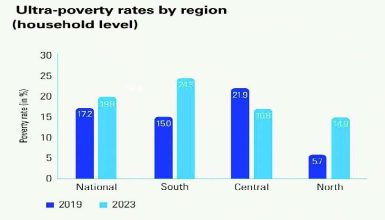Analysts tip Treasury on policy coordination
Economists have warned that the lack of coordination between fiscal and monetary policies could trigger rising inflation and raise the country’s debt burden.
The remarks come after the central bank in April raised the policy rate by 400 basis points to 22 percent to rein in inflation, which is currently hovering at around 27 percent following negative spillovers from fallout caused by domestic shocks in the local market.
Speaking in an interview on Friday, economic consultant and researcher Exly Silumbu said the central bank is justified to use the policy rate to reduce credit in the private sector, but expressed concern that the lack of coordination between the two variables could offset any gains accrued from raising the policy rate.
He said: “It is counterintuitive for the central bank to raise interest rates when the central government is pursuing an expansionary fiscal policy.
“The government is increasing expenditures and by extension aggregate demand in the economy.”
But Silumbu cautioned that raising interest rates could bring significant costs to the economy if the rising costs of borrowing spill over to the private sector and the central government.

Last week, commercial banks responded by raising base lending rates to 20 percent, a move that created panic among consumers and businesses amid concerns that raising interest rates will slow down investment and growth.
In a separate interview, economic analyst Bond Mtembezeka said raising the policy rate may not be as effective, considering that inflation in the country is largely driven by rising costs of production.
“It is the cost structure of producers and suppliers which is the basic source of inflation,” he said.
Mzuzu University economics lecturer Christopher Mbukwa urged the government to prioritise spending on investments to offset the losses emanating from the rising aggregate demand induced by government spending.
He said financing of fiscal deficits should be exclusively for capital projects as opposed to recurrent or consumption





